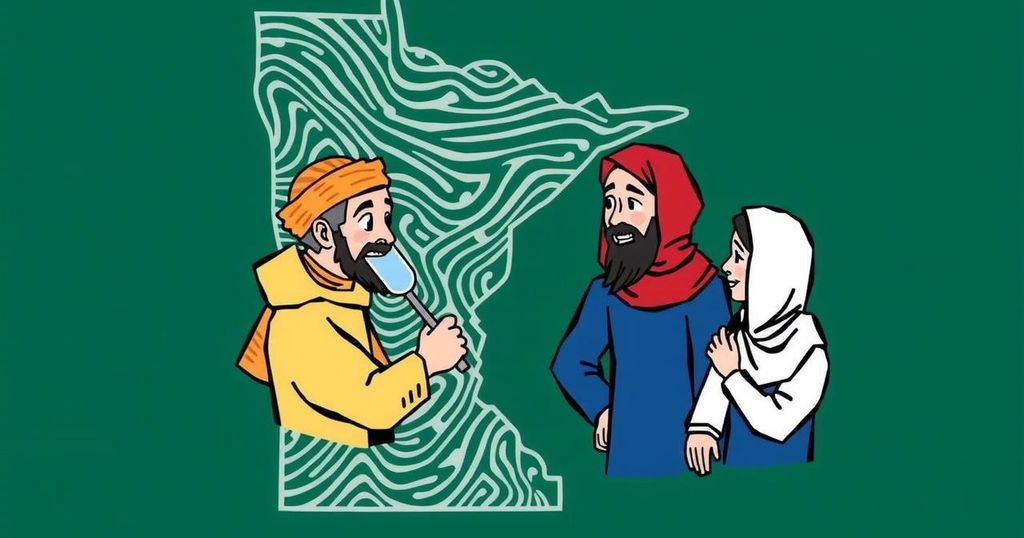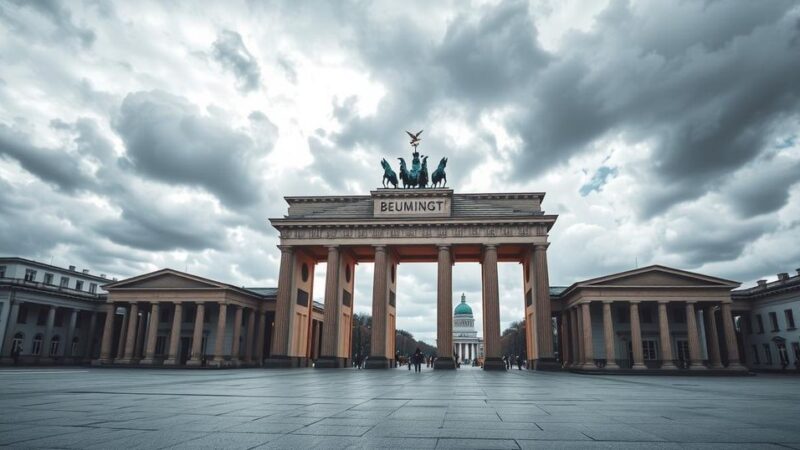The article discusses the urgent need for Muslim voters in Minnesota to actively participate in the 2024 election amid growing division in their community. It emphasizes the importance of engaging in the democratic process, not merely as a reflection of their principles but to assert their agency and influence. The author reflects on personal experiences and a desire for better futures for their children, urging fellow Muslims to mobilize and support candidates that align with their community’s needs, particularly in light of ongoing challenges such as Islamophobia and social injustices. By focusing on local and state elections, the article advocates for a proactive stance in shaping policies that will enhance the quality of life for all residents.
As I reflect upon the current political climate surrounding the 2024 election, it has become abundantly clear that the Muslim community in Minnesota is at a significant crossroads. My journey began in Kenya, where I witnessed the struggles of Somali refugees and learned from my aunt, a beacon of hope and activism. Her teachings inspired my commitment to civic engagement, which I have embraced since relocating to Minnesota in search of a better life for my family. As a newly naturalized citizen, I exercised my right to vote for the first time this week; however, I am disheartened to see many within my community contemplating abstaining from this crucial electoral process. The allure of certain presidential candidates, who propagate divisive rhetoric and policies against Muslims and immigrants, has spurred confusion and despair among us. At the forefront of my mind is my aspirations for my 5-year-old son and the future I envision for him, unmarred by Islamophobia and filled with opportunities for success and fulfillment. I am acutely aware that the ongoing violence against Palestinians, particularly in Gaza, has intensified feelings of powerlessness in our community. However, it is vital not to lose sight of our potential influence at the state and local levels, particularly when facing opposition from MAGA Republicans who seek to foster division among us. For Muslim voters, the pivotal choice this election represents an opportunity to shape the political landscape in a manner that resonates with our communities. It is essential to cast aside the notion that voting is merely a reflection of our ethical purity; rather, our collective participation in this democratic process must emphasize our agency and power. It is not about finding the perfect candidate, but rather engaging in a broader dialogue regarding our representation and voice in the political arena. By mobilizing as voters in Minnesota, we can reject Islamophobia and work towards a state where all can thrive, irrespective of background. Our past efforts have borne fruit; Muslim voters significantly contributed to the DFL trifecta in 2022, enabling the passage of transformative policies addressing critical issues like affordable housing and education. However, our work is far from finished. It is incumbent upon us to advocate for candidates who resonate with our experiences and aspirations, such as Abdi Daisane, who addresses pressing needs in our community. We must confront those who aim to delegitimize our struggles through Islamophobic narratives, standing united in our demand for effective solutions. As we approach this election, it becomes increasingly vital that we refuse to remain passive observers. The power to determine our collective fate rests not solely with candidates but with us as engaged voters capable of demanding and enacting meaningful change. It is our responsibility to forge a path forward where Muslims are pivotal contributors to the dialogue around policy and societal progress. It is time to enter the political arena, ensuring that our voices are no longer relegated to the sidelines.
The discourse of the Minnesota Muslim community regarding the 2024 election highlights the importance of active civic engagement amidst a backdrop of division inspired by both national and local politics. The author reflects on personal experiences of displacement and community advocacy, drawing from their Kenyan roots to emphasize the significance of collaborative progress within their new environment. The connection made between voting, civic duty, and familial hopes illustrates the urgency of fostering a politically aware community capable of confronting adversities such as Islamophobia and systemic inequities, while striving for a future that accommodates and enhances the quality of life for all citizens.
In conclusion, the upcoming election represents a critical opportunity for Muslim voters in Minnesota to assert their influence and advocate for inclusive representation. It is crucial for the community to participate actively in the electoral process, understanding that each vote contributes significantly to determining the political landscape that will shape their future. The call for unity over division and the emphasis on local engagement serve as vital reminders that the path to justice and equality begins at home, with a commitment to uphold the values of community and solidarity.
Original Source: sahanjournal.com






